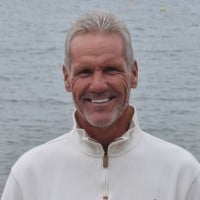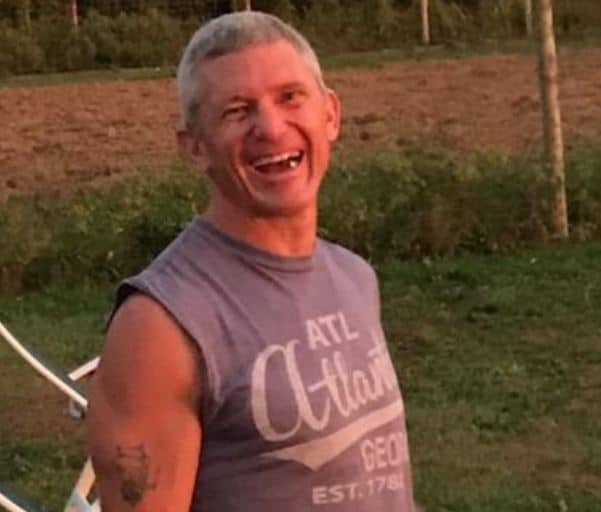As state officials and politicians ramp up their efforts to hold HRK Holdings accountable for the near 30-year debacle known as Piney Point, one must remember there are always two sides to every story. In exclusive interviews with The Free Press (TFP), two men have stepped forward to go on record about the owner of HRK.
Tim Timlin lives in Centereach, Long Island. He tells TFP he attended the University of Pennsylvania, Wharton School, where he played four years of college football and four years of college baseball. He graduated in 1979 with a Bachelor of Science degree in Economics and Organizational Management. After playing four years of professional baseball with the Kansas City Royals, and being inducted into the Pennsylvania Baseball Hall of Fame.
Timlin spent the next 26 years honing his financial skills on Wall Street in such positions as Director of Emerging Markets for Intercapital and a Credit Salesman for Jeffries before retiring in 2008.
These days, Timlin says he spends his retirement coaching, mentoring, and volunteering his time with organizations like the Special Olympics. He’s a deeply spiritual man who says his prayers each morning with a special request to help him avoid being “mean, vindictive, irresponsible, dishonest or unempathetic.”
“My whole reason for laying that backbone down is because that’s why I’m friends with Mickey,” Timlin explained. “This is why I look up to him. I feel a bond with him.”
“Mickey,” otherwise known as William “Mickey” Harley III, is the “H” in HRK Holdings, LLC, the company currently being targeted by Florida state officials, politicians, and a growing number of residents for the escalating problems at Piney Point.
Mickey has been described as “a vulture,” and an investor “who specializes in swooping in on dying and troubled companies and making a profit anyway.”
Reports tell the story of a man who owned a series of Hooters franchises in Long Island, sat on the board of a lingerie company called Frederick’s of Hollywood, served as president of a uranium mine in Namibia, and recently began exploring the marijuana industry.
“He’s a real renaissance man,” Timlin told TFP. “He’s a Yale graduate, a world-class athlete. He’s incredibly successful. He was a whirlwind on Wall Street. He hit a rough patch right before the mortgage crisis then reinvented himself to become wildly successful again and he did it strictly with common sense and altruistic hard work.”
Timlin met Mickey about 10 years ago at a volunteer camp after someone mentioned his name.
“Oh, that’s the quarterback from Holy Trinity,” Mickey had said.
Mickey was a lacrosse goaltender for Massapequa High School on Long Island. Timlin was in the Catholic League at Holy Trinity.
“It was a pretty good rivalry,” Timlin recalled, “and back in those days – the mid-70s and early 80s — everybody the different leagues knew each other.”
“We just got together and hit it off right away, and little by slowly we’ve been involved with some of the same organizations, like the Fellowship of Christian Athletes, and we did a lot of volunteer work at a number of sports camps around Long Island.”
“Mickey donated four and five hours out of every day of his life to Massapequa lacrosse for 14 years,” Timlin noted, “and that’s without having any kids of his own involved in the sport. I’ve seen Mickey put his personal life aside at the drop of a hat because someone who is struggling reached out. I’ve watched Mick mentor a number of wayward kids that didn’t grow up as blessed as he and I. We had a mom and dad that were present in the house. We had a roof over our head, and we clothes and warmth and meals. We were in a straight middle-class home in Brooklyn where dads were police officers, firemen or blue-collar contractors.”
“The thing with Mickey is,” Timlin explained, “through this chaos at Piney Point, all Mickey wants is for the truth to come out. It’s about truth. It’s about honesty.”
HRK purchased the Piney Point property as an investment in 2006. The former owner wound up in bankruptcy. However, due to lack of cooperation from Florida Department of Environmental Protection – who ultimately governs the management of the project — the colossal expense of trying to solve the pre-existing and growing list of new problems at Piney Point also forced HRK Holdings to file bankruptcy in 2012. It was then that the “R” and “K” of HRK Holdings – otherwise known as Scott Rosenzweig and Scott had passed away and Gary Kania – bailed, leaving the “H” dangling like a lone clay pigeon at an angry skeet shooting competition.
“Mickey doesn’t circumvent things,” Timlin assured. “He doesn’t look for an easy way out of anything. What he does is slow down and chop away at a problem little by little because the only way through a problem is right through the middle. That’s one of the things I admire most about him, his fortitude, his work ethic, his ability to always stay on point from a principled, motivated position.”
“I know Mick wouldn’t say it because he’s probably being advised by attorneys,” Timlin said. “But I’ll go on record and say it. In listening to him talk about this mess, there are other forces at work trying to paint his company as the heinous bad guys, as these capitalistic bums who put a big, smokey factory in the middle of a rose garden because they just want to make money. They want you to believe they don’t give a crap and they just want tax breaks and away to make money. Quite the contrary. I’ve watched Mick in other endeavors, always environmentally based and always with the idea that everyone can benefit. There is nothing wrong with running a for-profit organization, especially ones that benefit a lot of people. There are many corporations out there that employ a lot of people. And these people who put their you-know-whats on the line to build it deserve to be compensated. There’s nothing wrong with that.”
“In this case,” Timlin proposed, “it will be shown there were warnings made to the state of Florida and to the powers that be that there were issues and probabilities that things would go wrong and suggestions were made on how to go about fixing it. When the truth is finally laid out and reported – I mean there are lots of records, emails and documents about this thing – people need to start going down that rabbit hole. They need to look at what really happened, at what’s really going on over there. When they do, they’re going to find that it wasn’t through any fault of Mick’s company that these problems haven’t been fixed.”
On April 5, TFP reported how concerns of numerous problems and warning of a potential breach, expressed in a letter to letter to FDEP from an environmental engineer hired by HRK, were summarily dismissed. On April 8, TFP reported how Governor Ron DeSantis and Manatee County Administrator Scott Hopes vowed to hold HRK accountable and FDEP lawyers seem to be searching for ways to legally hold HRK accountable.
“I’d love to string them up,” Manatee County Commissioner Kevin Van Ostenbridge piled on.
Now, in a detailed and strongly worded second press release, obtained by TFP April 15, HRK Holdings is pushing back.
“To insinuate that HRK has done anything other than what was required of and allowed by the State of Florida under the authority of the numerous agreements and projects undertaken by the company is preposterous,” the statement reads in part.
“HRK has proposed numerous solutions to FDEP over the years,” the statement clarifies, “including a number of solutions in just the last year. However, once again, another significant submerged liner system failure has now been identified as part of the current investigation underway at the site.
“Unfortunately, while continuing to delay the approval, funding, and implementation of any meaningful resolution to address these ongoing risks and problems, the authorities chose to turn away from all requests for help.”
“Let’s look at Mick’s motives” Timlin offered. “He thought he could help. It’s what he likes to do. He likes to fix things. So, it fits his model perfectly. The government was asking, does anyone want to help, we’ll give you special considerations and they came in, they put in a lot of their own hard-earned money and certainly a lot of their time, and here it is. He did what they said he would do. He’s a man of his word. The only impediment has been the powers that be who asked for help in the first place.”
“Look, I love Governor on DeSantis,” Timlin confessed, “love him. I believe in him wholeheartedly and believe him to be a just and fair man. But I pray and look forward to Gov. DeSantis searching for the truth and I completely expect that, if he does this, he will ultimately hold the truly responsible parties accountable. But jumping to conclusions, or looking for a strawman or a bogyman to lay blame on to deflect from the real responsible parties, is a bad choice. If he doesn’t slow down and pay attention to the direction he’s letting people take him on in this thing, this can very well become a speed bump on an otherwise smooth ascent to a presidential run at some point.”
William McCabe – an attorney and former restaurateur — lives in Massapequa, New York. In an independent interview with TFP, McCabe spoke candidly about Mickey.
“I grew up in Massapequa,” McCabe told TFP, “as did Mickey Harley. We went to high school together. We played lacrosse. I went to Cornell University and Mickey went to Yale. Mickey and I have been friends all our lives. My father knew his father. We grew up together.”
“In 2010 I got pneumonia and I was in the hospital. I was very sick. We hadn’t seen each other for a while but Mickey came to visit me. It’s how he is. After my restaurant closed in 2011, I was down and out. I needed a new start we thought we could start a recycling business on the property. I went to work with him. Jeff Barath was running things and he did a fine engineering job of monitoring those stacks day by day.”
In 2013 McCabe participated in the development of a blueberry orchard on property Mickey has in Long Island.
“It began with research,” McCabe said. “Then went hands-on. I worked there steady for three years and then just part-time. With organic farming, the most amazing thing is that, while all the other farms out there use pesticides, herbicides, and fertilizer, Mickey decided on his crop he was going to go organic. We had local tree shredders come to drop off wood chips and it was just amazing. The soil on that 30 acres was just as black and moist. But you drive down the road where they had potato farms or cornfields and you could just see the dust blowing away. You knew there were no earthworms, no life over there.”
It was McCabe’s experience in Mickey’s organic farming venture that provides him a clear perspective of what’s going on at Piney Point.
“You know, Mickey has had that property for years and hasn’t made a dime on it since the beginning,” McCabe clarified. “But he’s been dumping money into it. He’s put millions into a fund to protect that property. All the water that runs off from the farms around there and anything above them above the bay is retained on that property in those stacks. I know he’s proposed many ways of draining them or digging wells. It’s hard. The FDEP works hard down in Florida. But it’s a bureaucracy and it’s hard to get anything initiated unless there’s an immediate need or a problem to solve. Mickey gave them several ideas on how to drain the stacks. But they just wouldn’t agree with it. So, now the situation is there can be a breach problem. They keep talking about phosphate contamination. There’s more nitrogen in there from the farms than phosphate from the stacks. The Hillsborough river has the same problem with the rainwater from the farms draining into it. That water can cause an algae bloom. When I was there, there were fish, turtles, and gators living in those stacks. It’s not as toxic as they’re making it sound in the press. They’re blowing this out of proportion.”
As News Channel 8’s Mahsa Saeidi reported April 6, Matthew Pasek — a geochemistry professor at the University of South Florida – said the water in at Piney Point “contains phosphorus, nitrogen, sulfuric acid and small amounts of heavy metals.” These are the chemical byproducts of fertilizer.
In 2011, Hillsborough County’s Environmental Protection Commission — made up of Hillsborough County commissioners — approved new regulations that restricted the use of fertilizers by homeowners. However, even though Commissioner Mark Sharpe cited research that showed less than one percent of the nitrogen flowing into the waterways comes from residential lawn fertilizer, farmers — who use exponentially larger quantities of nitrogen-rich fertilizer for agricultural purposes — are exempt from these regulations.
“When Mickey and I were together we would discuss spirituality, history, the environment,” McCabe recalled. “He’s mentored me. He mentors lost kids. He reaches out to help people and does a lot of charity work here in Massapequa. When we were out on the farm he would be working and taking calls and he’d have his headphones on listening to an e-book at the same time. It wasn’t uncommon for him to have five books going at one time. He takes multi-tasking to a whole new level. He’s like a renaissance man.”
“It’s an anomaly for someone to be that successful and remains that grounded,” McCabe said bluntly. “I think it’s because he’s got God inside, to tell you the truth. I really do love the guy.”
While Timlin and McCabe acknowledge knowing each other, neither of them knew they were both being interviewed separately, prior to the writing of this article. Over the weekend, Mickey agreed to go on record and speak exclusively with TFP, which we will be publishing.




I worked with Tim Timlin – was as dodgy as they came on Wall St, a bully – widely disliked. Lots of powder on his nose. Always dropping the Wharton name. We all knew – its UPenn if undergrad, Wharton if post grad. Timlin was completely unscrupulous and treated hi co-workers with contempt. Nasty snake of an individual.